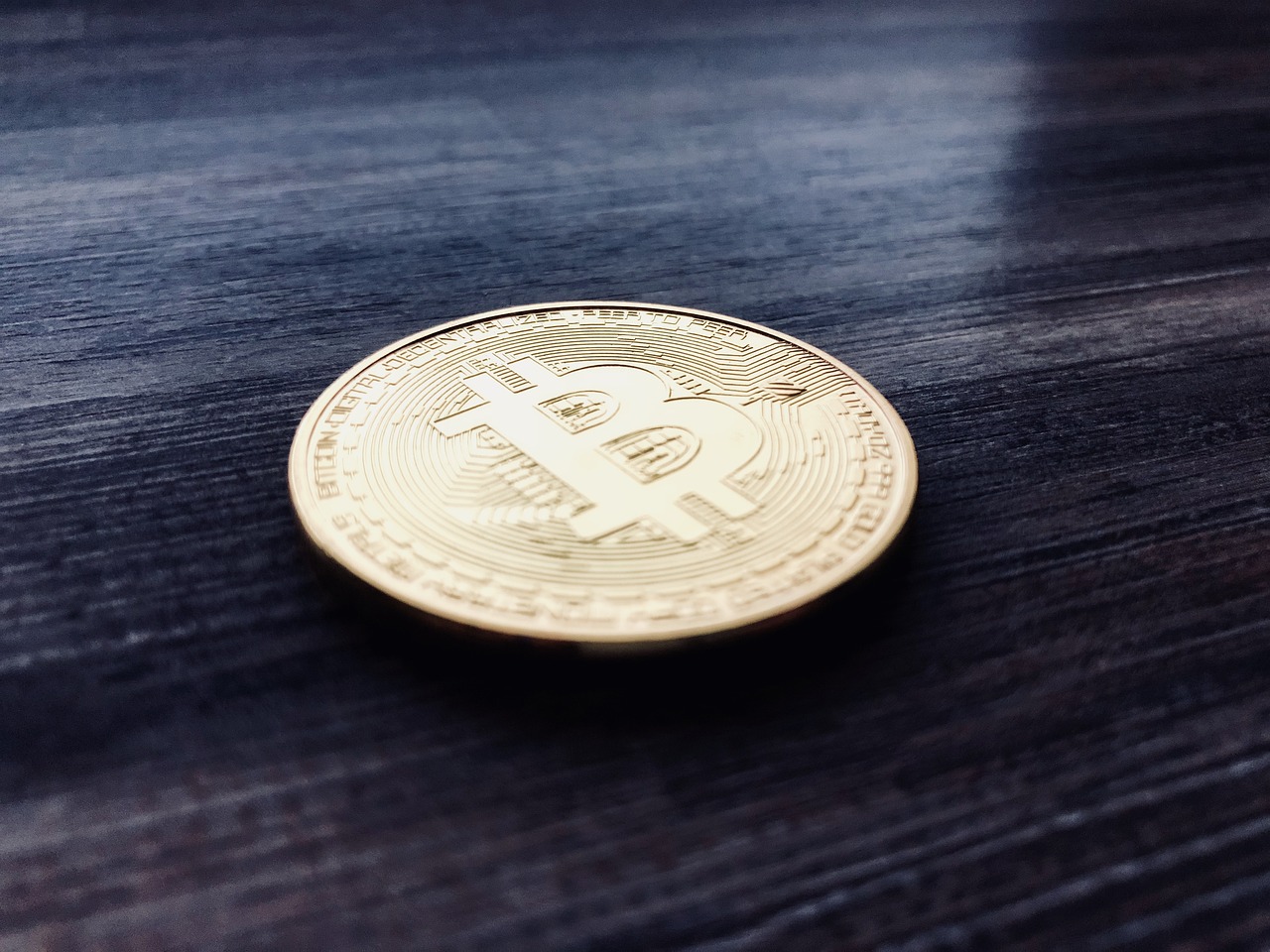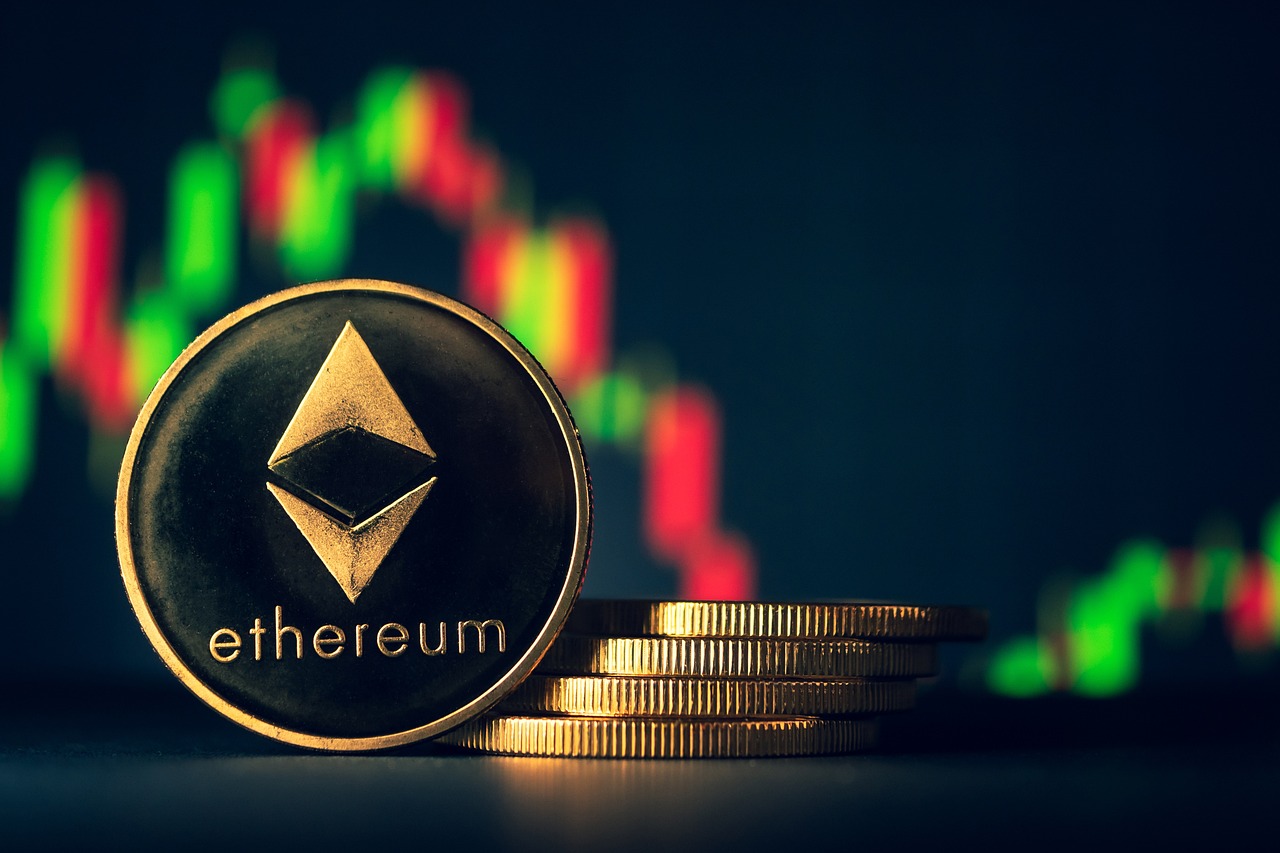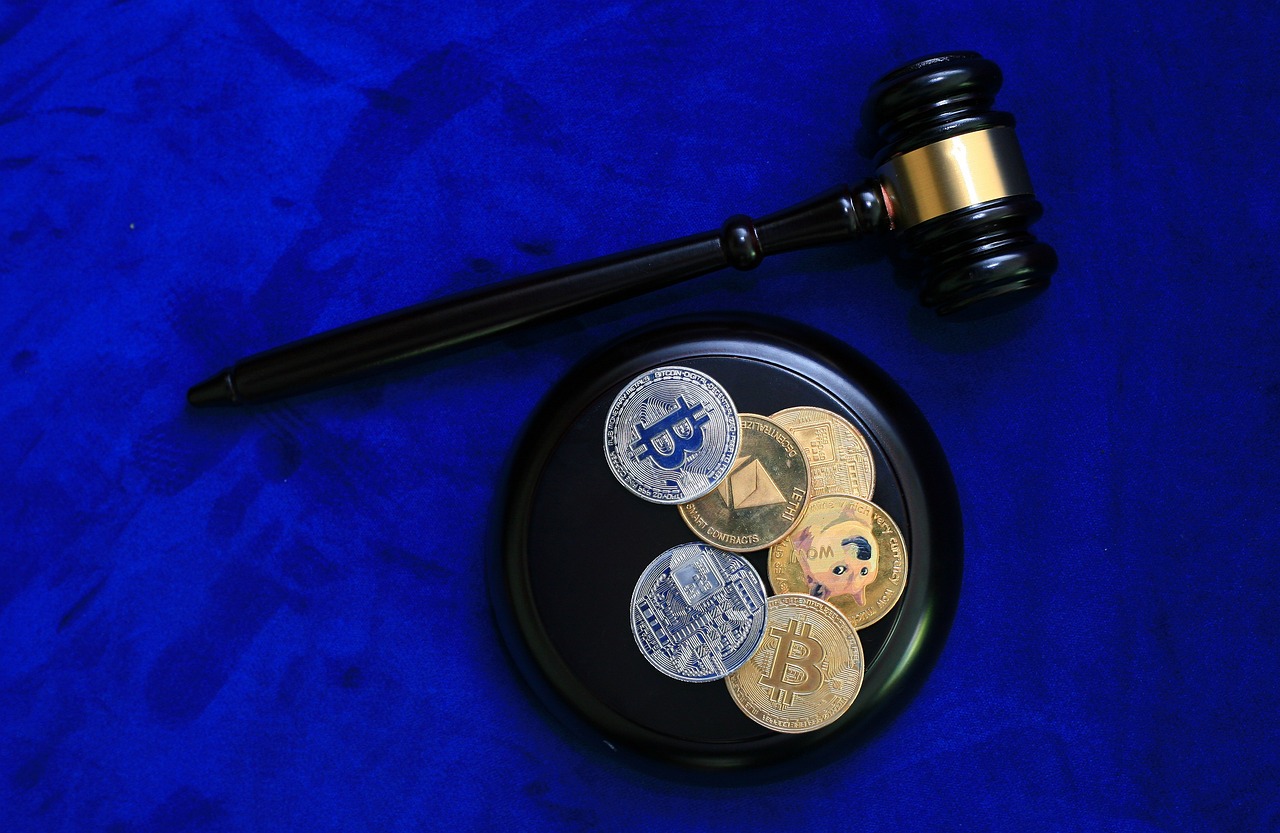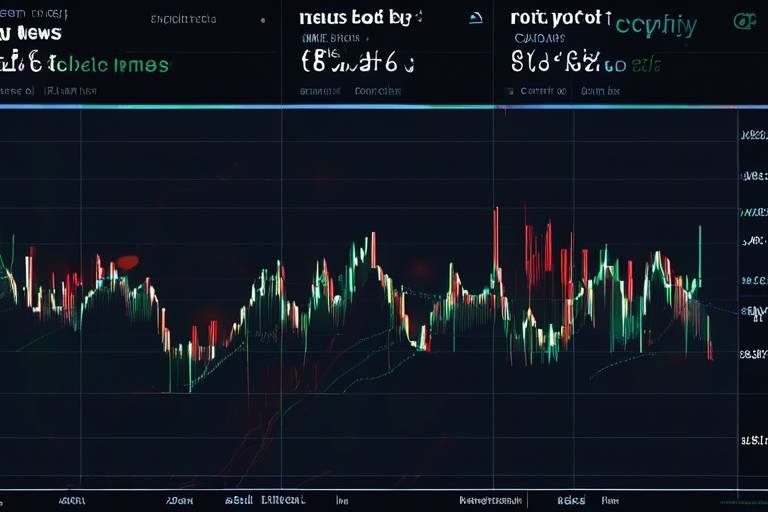Understanding the Dynamics of Cryptocurrency Valuation
In the ever-evolving world of cryptocurrencies, understanding the dynamics of valuation can feel like trying to catch smoke with your bare hands. The digital currency landscape is not just shaped by numbers; it's a complex interplay of various factors that can send prices soaring or plunging in the blink of an eye. From the buzz of market trends to the whispers of investor sentiment, every element plays a crucial role in determining the worth of cryptocurrencies. In this article, we will explore the multifaceted influences on cryptocurrency valuation, shedding light on how these elements interact to create the vibrant, yet unpredictable, crypto marketplace.
At its core, cryptocurrency valuation is driven by a delicate balance of supply and demand. Just like any other asset, when demand for a particular cryptocurrency exceeds its supply, prices tend to rise. Conversely, when supply outstrips demand, prices can fall dramatically. This principle of supply and demand is not just a textbook concept; it’s a living, breathing force in the crypto market. For instance, consider Bitcoin, the pioneer of cryptocurrencies. Its limited supply of 21 million coins creates a sense of scarcity, which can lead to increased demand and, subsequently, higher prices. The dynamics of this relationship can be likened to a game of tug-of-war, where both sides are constantly pulling, pushing, and adjusting their strategies based on market conditions and investor behavior.
However, it’s not just supply and demand that shape the valuation of cryptocurrencies. Technological innovations play a significant role as well. The blockchain technology that underpins cryptocurrencies is continually evolving, with improvements in scalability, security, and transaction speed. These advancements can enhance investor confidence and attract new participants to the market. For example, when a cryptocurrency introduces a groundbreaking feature or a significant upgrade, it often leads to a surge in interest and investment. This is where the concept of smart contracts comes into play. Smart contracts are self-executing contracts with the terms directly written into code, and their integration into various platforms can significantly enhance the utility and valuation of cryptocurrencies.
Moreover, the adoption of smart contracts across different industries is expanding the potential applications of cryptocurrencies. This not only influences their market value but also makes them more attractive to investors. Imagine a world where real estate transactions are completed in seconds without the need for intermediaries, all thanks to smart contracts. This potential for real-world application can significantly boost investor sentiment and drive up valuations.
Security is another critical aspect when it comes to smart contracts. Investors need to feel secure, and robust security measures can build trust, which in turn positively affects the valuation of cryptocurrencies. If an investor knows that a particular cryptocurrency has undergone rigorous security audits and has a strong track record, they are more likely to invest. This creates a ripple effect, where increased trust leads to higher demand and, consequently, higher prices.
The rise of Decentralized Finance (DeFi) platforms has also transformed how cryptocurrencies are valued. DeFi has made financial services more accessible, allowing users to lend, borrow, and trade without the need for traditional banking systems. This shift has increased liquidity and broadened the market for cryptocurrencies, leading to a more dynamic valuation landscape. The accessibility of DeFi platforms means that more people can participate in the crypto economy, which can further drive demand and impact prices.
Another critical factor influencing cryptocurrency valuation is market sentiment and speculation. Investor emotions can sway prices dramatically, often leading to rapid fluctuations based on news, trends, or even social media posts. Understanding the psychological factors at play can provide valuable insights into market trends and potential valuation shifts. For instance, a tweet from a high-profile individual can send a cryptocurrency’s price skyrocketing or crashing down, illustrating the power of social media in today’s market.
As we navigate through these dynamics, it’s essential to recognize the impact of regulatory factors on cryptocurrency valuation. Government policies and regulations can create an environment of uncertainty or stability, directly influencing investor confidence. For example, a country announcing a crackdown on cryptocurrency trading can lead to panic selling, while positive regulatory news can boost market sentiment.
In conclusion, understanding the dynamics of cryptocurrency valuation involves looking at a myriad of factors, from supply and demand to technological innovations and market sentiment. Each of these elements interacts in complex ways, shaping the ever-changing landscape of the cryptocurrency market. As we continue to explore this fascinating realm, one thing is clear: the world of cryptocurrencies is as unpredictable as it is exciting, and staying informed is key to navigating its twists and turns.
- What factors influence cryptocurrency valuation?
Cryptocurrency valuation is influenced by supply and demand, technological innovations, market sentiment, and regulatory factors. - How do smart contracts affect cryptocurrency value?
Smart contracts enhance the utility and application of cryptocurrencies, which can lead to increased investor interest and higher valuations. - What role does market sentiment play in cryptocurrency pricing?
Market sentiment can cause rapid price fluctuations based on investor emotions, news, and social media trends. - How do regulations impact cryptocurrency valuations?
Regulatory frameworks can create uncertainty or stability in the market, influencing investor confidence and, consequently, valuations.

The Role of Supply and Demand
When diving into the world of cryptocurrency, one cannot overlook the fundamental economic principles of supply and demand. These two forces are like the yin and yang of the market, constantly influencing the prices of various cryptocurrencies in sometimes surprising ways. Imagine a seesaw; when one side goes up, the other must come down. This dynamic interplay is crucial in understanding why prices can skyrocket one day and plummet the next.
At its core, the supply of a cryptocurrency refers to the total amount of that currency available in the market. For instance, Bitcoin has a capped supply of 21 million coins, which creates a sense of scarcity. This limited availability can lead to increased demand, especially as more people become aware of and interested in cryptocurrencies. On the flip side, if a cryptocurrency has a high supply with little demand, its value is likely to decrease. This is where the demand aspect comes into play. Demand is driven by various factors, including investor interest, market trends, and the perceived utility of the cryptocurrency.
To illustrate this further, let's consider a simple table that outlines how supply and demand affect cryptocurrency pricing:
| Scenario | Supply | Demand | Price Movement |
|---|---|---|---|
| High Demand, Low Supply | Limited | Increasing | Price Increases |
| Low Demand, High Supply | Abundant | Decreasing | Price Decreases |
| Stable Supply, Fluctuating Demand | Constant | Varies | Price Volatility |
As you can see, the interplay between supply and demand can lead to various price movements, each with its own implications for investors. But it’s not just about the numbers; emotional factors also play a significant role. When news breaks about a new partnership or technological advancement, demand can surge, leading to a rapid increase in price. Conversely, negative news can trigger panic selling, driving prices down.
Moreover, the cryptocurrency market is highly speculative. Investors often make decisions based on trends and sentiments rather than fundamental analysis. This speculative behavior can lead to significant price swings, further complicating the relationship between supply and demand. In fact, the volatility of cryptocurrencies is one of the reasons many investors are drawn to them. It’s like a roller coaster ride—thrilling but unpredictable!
In summary, understanding the role of supply and demand is essential for anyone looking to navigate the cryptocurrency landscape. These principles not only explain why prices fluctuate but also provide insights into market sentiment and investor behavior. Whether you're a seasoned trader or a curious newcomer, recognizing how these forces interact can empower you to make more informed decisions in this exciting yet unpredictable market.
- What happens when supply exceeds demand? When supply exceeds demand, prices typically fall as sellers compete to attract buyers.
- How does news affect supply and demand? News can significantly influence investor sentiment, leading to increased demand or panic selling, which impacts prices.
- Is there a way to predict supply and demand changes? While it's challenging to predict changes, analyzing market trends, news, and investor behavior can provide insights.

Technological Innovations
In the fast-paced world of cryptocurrency, serve as the backbone of value creation and market dynamics. As new technologies emerge, they redefine how cryptocurrencies operate and are perceived by investors. Take, for example, the evolution of blockchain technology. Originally designed to support Bitcoin, it has evolved into a multifaceted system that can accommodate various applications across different sectors. The improvements in blockchain technology, such as increased transaction speed and reduced costs, have made cryptocurrencies more appealing to both users and investors alike.
But it’s not just about speed or cost; scalability solutions have also come into play. Projects like Ethereum 2.0 aim to enhance the capacity of networks to handle more transactions without compromising security. Imagine a highway that expands to accommodate more cars during rush hour; that’s what scalability does for blockchain networks. When investors see that a cryptocurrency can handle a growing user base efficiently, their confidence typically increases, which can lead to a rise in value.
One of the most exciting advancements in the cryptocurrency space is the introduction of smart contracts. These are essentially self-executing contracts with the terms written directly into lines of code. They operate on blockchain networks and automatically enforce agreements when predefined conditions are met. This innovation not only reduces the need for intermediaries but also increases transparency and trust in transactions. For instance, if a smart contract is programmed to release funds only when a service is rendered, both parties can feel secure in the agreement, knowing that the contract will execute as intended.
The potential applications of smart contracts are vast and span across numerous industries, from finance to real estate to supply chain management. For example, in real estate, smart contracts can simplify the buying process by automating tasks like title transfers and escrow services. This efficiency can lead to lower transaction costs and faster closings, making cryptocurrencies more attractive for real estate transactions.
Here’s a brief overview of some industries leveraging smart contracts:
| Industry | Application |
|---|---|
| Finance | Automated loan agreements and payment processing |
| Real Estate | Streamlined property transactions and title transfers |
| Supply Chain | Tracking goods and ensuring compliance |
| Healthcare | Secure sharing of patient data |
As these use cases expand, the demand for cryptocurrencies that support smart contracts will likely increase, thereby enhancing their market value.
With the rise of smart contracts comes the critical need for robust security features. The integrity of these contracts is paramount; any vulnerabilities can lead to significant financial losses. Investors are more likely to trust cryptocurrencies that implement rigorous security measures. For instance, projects that undergo extensive audits and testing before launching their smart contracts tend to foster greater investor confidence. In the cryptocurrency world, trust is currency, and the more secure a platform is, the more valuable it becomes in the eyes of potential investors.
In conclusion, technological innovations like smart contracts and scalability solutions are not just buzzwords; they are transformative forces that shape the cryptocurrency landscape. As these technologies continue to evolve, they will undoubtedly influence investor sentiment and market valuation, making it essential for stakeholders to stay informed.

Smart Contracts
Smart contracts are one of the most revolutionary elements in the cryptocurrency ecosystem. Imagine a contract that automatically executes itself when certain conditions are met—no lawyers, no middlemen, just pure code. This is the essence of smart contracts. They are self-executing contracts with the terms of the agreement directly written into lines of code. This means that once the contract is deployed on the blockchain, it operates autonomously, ensuring that all parties adhere to the agreed terms without the need for human intervention.
The integration of smart contracts into various platforms significantly enhances the utility and valuation of cryptocurrencies. For instance, they allow for seamless transactions and can be programmed to handle complex agreements in a fraction of the time it would take traditional methods. This efficiency not only attracts more users to the cryptocurrency space but also builds trust in the technology, which is crucial for its valuation.
Consider the following scenarios where smart contracts shine:
- Real Estate Transactions: Smart contracts can automate the entire buying and selling process, from escrow to title transfer, reducing the potential for fraud and errors.
- Supply Chain Management: They can track the movement of goods in real-time, ensuring transparency and accountability at every step.
- Insurance Claims: Smart contracts can process claims automatically based on predefined criteria, speeding up the payout process and enhancing customer satisfaction.
However, the effectiveness of smart contracts hinges on their security features. If the code is flawed, it could lead to significant vulnerabilities. This is why robust security measures are paramount. A well-audited smart contract can greatly enhance trust among users, which in turn affects the valuation of the cryptocurrencies associated with it. Investors are more likely to invest in projects that demonstrate a commitment to security and reliability.
In summary, smart contracts represent a powerful innovation in the cryptocurrency landscape. Their ability to automate processes, reduce costs, and enhance trust not only makes them attractive to users but also significantly influences the overall market dynamics and valuation of cryptocurrencies. As more industries recognize their potential, we can expect to see a growing impact on the cryptocurrency market, making it an exciting space to watch.
- What are smart contracts? Smart contracts are self-executing contracts with the terms of the agreement directly written into code on the blockchain.
- How do smart contracts work? They automatically execute actions when predefined conditions are met, ensuring that all parties fulfill their obligations without the need for intermediaries.
- Are smart contracts secure? While they can be secure, the safety of a smart contract depends on the quality of its code and the auditing process it undergoes.
- What industries can benefit from smart contracts? Industries such as real estate, supply chain management, and insurance are already leveraging smart contracts to enhance efficiency and transparency.

Use Cases in Various Industries
The integration of smart contracts into various industries is revolutionizing the way transactions and agreements are executed. By automating processes and reducing the need for intermediaries, these contracts are not just enhancing efficiency but also significantly influencing the valuation of cryptocurrencies. For instance, in the real estate sector, smart contracts can streamline property transactions by automatically executing terms once certain conditions are met, such as payment confirmation. This not only speeds up the buying process but also minimizes the risk of fraud, thereby increasing trust in the cryptocurrency involved.
In the financial services sector, decentralized applications (dApps) built on blockchain technology are reshaping traditional banking. These platforms enable peer-to-peer lending, allowing individuals to lend and borrow without the need for traditional banks. This democratization of finance expands the user base for cryptocurrencies and increases their utility, thus enhancing their market value. A recent report indicated that DeFi platforms have seen a surge in user adoption, pushing the total value locked in DeFi to over $100 billion, showcasing the immense potential of cryptocurrencies in this space.
Moreover, the healthcare industry is also leveraging smart contracts to secure patient data and manage healthcare records. By using blockchain technology, patients can have greater control over their medical information, granting access to healthcare providers only when necessary. This not only enhances privacy but also builds confidence in using cryptocurrencies for healthcare transactions. The ability to track and verify the authenticity of medical supplies using blockchain further emphasizes the potential of cryptocurrencies in ensuring safety and transparency.
Another intriguing application is in the supply chain management sector. Smart contracts can facilitate real-time tracking of goods, ensuring that all parties involved in the supply chain are updated on the status of shipments. This transparency reduces disputes and enhances accountability, making cryptocurrencies more attractive for businesses seeking to optimize their operations. With industries increasingly adopting these technologies, the demand for cryptocurrencies is likely to grow, directly impacting their valuation.
In summary, the diverse use cases of smart contracts across various industries not only highlight their versatility but also underscore their potential to positively influence cryptocurrency valuations. As more sectors recognize the benefits of blockchain technology and smart contracts, the landscape of cryptocurrencies will continue to evolve, creating new opportunities for both investors and users alike.

Security Features
When it comes to cryptocurrencies, are not just an add-on; they are the backbone of trust and reliability in the digital currency landscape. You might wonder, why does security matter so much? Well, imagine you’re holding a treasure chest filled with gold coins. Without a sturdy lock, anyone could waltz in and take what's yours. In the same vein, cryptocurrencies need robust security mechanisms to protect against theft, fraud, and hacking.
One of the primary security features of cryptocurrencies is cryptography. This technology ensures that transactions are secure and that the identities of the parties involved remain anonymous. Cryptographic techniques, such as hashing and digital signatures, create a secure environment for transactions, making it nearly impossible for unauthorized users to alter transaction data. Think of it as a secret code that only you and your intended recipient can understand.
Another critical aspect is the use of distributed ledger technology (DLT). Unlike traditional banking systems that rely on a centralized database, cryptocurrencies operate on a decentralized network of nodes. This means that no single entity has control over the entire system, making it significantly harder for hackers to compromise the network. If one node goes down or is attacked, the others continue to function, ensuring the integrity of the overall system. It's like having multiple copies of a book stored in different libraries; even if one library burns down, the book still exists elsewhere.
Moreover, many cryptocurrencies have implemented security features such as multi-signature wallets. A multi-signature wallet requires multiple private keys to authorize a transaction, adding an additional layer of security. This is particularly useful for organizations or individuals who manage large amounts of cryptocurrency, as it prevents a single point of failure. Imagine needing a team of people to unlock that treasure chest; it makes it much harder for anyone to snatch your loot!
However, no system is foolproof, and vulnerabilities can still exist. Therefore, it’s essential for investors to conduct thorough research on the security measures employed by any cryptocurrency they are considering. Understanding the underlying technology and security protocols can significantly impact your investment decisions. To help you navigate this complex landscape, here’s a quick overview of common security features in cryptocurrencies:
| Security Feature | Description |
|---|---|
| Cryptography | Ensures secure transactions and protects user identities. |
| Distributed Ledger Technology | Decentralizes control, making it harder to hack the network. |
| Multi-Signature Wallets | Requires multiple keys for transaction approval, enhancing security. |
| Regular Security Audits | Involves third-party evaluations to identify and fix vulnerabilities. |
In conclusion, the security features of cryptocurrencies are paramount in establishing trust and confidence among users. As the digital currency landscape continues to grow, prioritizing security will not only protect individual investments but also contribute to the overall stability and credibility of the cryptocurrency market.
- What are the most common security threats to cryptocurrencies? Common threats include hacking, phishing attacks, and malware.
- How can I ensure my cryptocurrency investments are secure? Use reputable wallets, enable two-factor authentication, and keep your software updated.
- What is a hardware wallet? A hardware wallet is a physical device that securely stores your cryptocurrency offline, making it less susceptible to online threats.
- Are all cryptocurrencies equally secure? No, security varies by cryptocurrency based on their underlying technology and protocols.

Decentralized Finance (DeFi)
has emerged as a revolutionary force in the cryptocurrency landscape, fundamentally altering how we think about finance. At its core, DeFi aims to create an open-source and permissionless financial ecosystem that operates without intermediaries like banks or brokers. Imagine a world where you can lend, borrow, trade, and earn interest on your crypto assets directly through smart contracts, without the need for a traditional financial institution. This shift not only enhances accessibility but also democratizes financial services, making them available to anyone with an internet connection.
The impact of DeFi on cryptocurrency valuation is profound. As more users engage with DeFi platforms, the demand for cryptocurrencies that facilitate these transactions increases, leading to potential price surges. For instance, stablecoins play a crucial role in the DeFi ecosystem by providing a stable medium of exchange, which is essential for lending and borrowing activities. The more robust the DeFi sector becomes, the more it attracts investors seeking to capitalize on the opportunities presented by these innovative financial products.
One of the most exciting aspects of DeFi is its ability to enhance liquidity. Traditional finance often suffers from liquidity constraints, but DeFi platforms allow users to provide liquidity in exchange for rewards. This process, known as liquidity mining, incentivizes users to contribute their assets to liquidity pools, thereby increasing the overall liquidity in the market. As liquidity improves, so does the overall market efficiency, which can lead to reduced price volatility and a more stable valuation for cryptocurrencies involved in these transactions.
Furthermore, DeFi platforms often utilize governance tokens, which allow holders to participate in decision-making processes regarding the platform's future. This sense of ownership fosters community engagement and can lead to increased investment in the underlying cryptocurrencies. The more involved investors feel, the more likely they are to support the platform, creating a positive feedback loop that can enhance valuation.
However, it’s essential to recognize that the DeFi space is not without its challenges. Issues such as smart contract vulnerabilities and regulatory uncertainties can pose risks to investors. The decentralized nature of these platforms means that there is often no recourse for users in the event of a hack or exploit. Therefore, while DeFi presents exciting opportunities, it also requires a cautious approach from investors. Understanding the underlying technologies and the risks involved is crucial for navigating this rapidly evolving landscape.
In summary, DeFi is reshaping the cryptocurrency market by enhancing liquidity, accessibility, and user engagement. As it continues to grow, the valuation of cryptocurrencies tied to these platforms is likely to reflect the increasing adoption and innovation within the DeFi ecosystem. Investors who keep a close eye on this trend may find themselves well-positioned to benefit from the future of finance.

Market Sentiment and Speculation
When it comes to the world of cryptocurrency, one of the most fascinating aspects is the role of market sentiment and speculation. Have you ever noticed how quickly the price of a coin can skyrocket or plummet? It often feels like a rollercoaster ride, and that's because the psychological factors driving investor behavior are incredibly powerful. In the crypto market, emotions can outweigh fundamentals, leading to rapid price changes that leave many scratching their heads.
Market sentiment is essentially the overall attitude of investors toward a particular cryptocurrency or the market as a whole. This sentiment can be influenced by a multitude of factors, including news articles, social media trends, and even celebrity endorsements. For instance, when a well-known figure tweets about a specific cryptocurrency, it can create a wave of excitement that drives prices up almost instantly. Conversely, negative news can spread like wildfire, causing panic selling among investors.
In addition to social factors, speculation plays a crucial role in shaping market dynamics. Speculators often buy and sell cryptocurrencies not based on their intrinsic value, but rather on short-term price movements. This creates a volatile environment where prices can fluctuate wildly. To illustrate this, consider the following table that summarizes the impact of speculation on cryptocurrency prices:
| Speculative Activity | Impact on Price | Investor Behavior |
|---|---|---|
| High Trading Volume | Price Surge | Increased Buying Pressure |
| Negative News Cycle | Price Drop | Panic Selling |
| Celebrity Endorsement | Price Spike | Heightened Interest |
This table highlights how different types of speculative activity can lead to significant price movements, demonstrating the fragile nature of cryptocurrency valuation. It's essential to recognize that while speculation can lead to quick profits, it also carries substantial risks. Investors must tread carefully, balancing their emotional responses with sound investment strategies.
Moreover, the influence of social media cannot be overstated. Platforms like Twitter, Reddit, and Telegram have become breeding grounds for discussions and hype around various cryptocurrencies. A single post can ignite a frenzy of buying, as people jump on the bandwagon, hoping to ride the wave of rising prices. However, this can also lead to FOMO (Fear of Missing Out), where investors make hasty decisions based on hype rather than thorough analysis.
As we delve deeper into the intricacies of market sentiment and speculation, it's crucial to remember that the cryptocurrency landscape is ever-evolving. Staying informed and aware of these dynamics can empower investors to make better decisions, even in the face of uncertainty. Ultimately, understanding the psychological factors at play can provide valuable insights into potential valuation shifts and market trends.
- What is market sentiment in cryptocurrency? Market sentiment refers to the overall attitude of investors towards a cryptocurrency, which can be influenced by news, social media, and market trends.
- How does speculation affect cryptocurrency prices? Speculation can lead to rapid price fluctuations as investors buy and sell based on short-term movements rather than intrinsic value.
- Why is social media important in the crypto market? Social media platforms amplify market sentiment and can lead to significant price changes based on discussions and trends.

Influence of Social Media
Social media has revolutionized the way we communicate, share information, and even invest. In the world of cryptocurrency, platforms like Twitter, Reddit, and Telegram have become pivotal in shaping market sentiment. Imagine a bustling marketplace where traders gather not just to buy and sell, but to discuss, debate, and influence each other's decisions. This is essentially what social media has transformed into for crypto enthusiasts.
One of the most compelling aspects of social media is its ability to amplify news and trends at lightning speed. A single tweet from a prominent figure can send shockwaves through the market. For instance, when Elon Musk tweets about Dogecoin, the price can skyrocket within minutes. This phenomenon highlights the power of influencer marketing in the crypto space, where the opinions of a few can sway the decisions of many.
Moreover, social media platforms serve as a breeding ground for speculation. Investors often turn to these platforms to gauge sentiment before making investment decisions. They share insights, analyses, and predictions, creating a collective consciousness that can drive prices up or down. The viral nature of posts can lead to herd behavior, where individuals follow the crowd, often disregarding their own research or instincts.
Another critical aspect to consider is the role of community. Cryptocurrencies often have dedicated communities that rally around them, sharing updates, memes, and success stories. This sense of belonging can enhance loyalty among investors, making them more likely to hold onto their assets even during market downturns. As a result, strong community support can stabilize a cryptocurrency's price, making it less susceptible to volatility.
However, it’s essential to approach social media with caution. Misinformation can spread just as quickly as accurate information. Fake news or exaggerated claims can lead to panic selling or irrational buying, illustrating the double-edged sword that social media represents in the cryptocurrency market. Investors must remain vigilant and conduct thorough research before acting on social media buzz.
In summary, the influence of social media on cryptocurrency valuation is profound and multifaceted. It can drive prices through hype and speculation while also fostering community and loyalty. As the market continues to evolve, understanding this dynamic becomes increasingly important for investors looking to navigate the choppy waters of cryptocurrency trading.
- How does social media affect cryptocurrency prices?
Social media can rapidly disseminate information, leading to quick price changes based on sentiment and speculation. - Can I trust social media for investment advice?
While social media can provide insights, it’s crucial to verify information and conduct your own research before making investment decisions. - What role do influencers play in the crypto market?
Influencers can significantly sway public opinion and market behavior, often leading to rapid price movements based on their endorsements or critiques.

Celebrity Endorsements
Celebrity endorsements can create a significant buzz around specific cryptocurrencies, often leading to rapid changes in market perception and valuation. When a well-known figure, whether a musician, athlete, or entrepreneur, publicly advocates for a cryptocurrency, it can spark a wave of interest among fans and investors alike. This phenomenon is akin to how a popular movie can boost the sales of merchandise related to it; the excitement generated by the celebrity can translate into increased demand for the endorsed cryptocurrency.
For instance, when a celebrity shares their investment in a particular cryptocurrency on social media, it can lead to a surge in public interest. Investors may rush to buy into the hype, driving up the price significantly in a short period. However, this can also lead to volatility, as prices may plummet just as quickly when the hype dies down or if the celebrity's endorsement is perceived as insincere or purely promotional. It's essential to understand that while these endorsements can provide a temporary boost, they do not necessarily reflect the underlying value or utility of the cryptocurrency itself.
Moreover, the impact of celebrity endorsements is not uniform; it often depends on the celebrity's credibility and the context of the endorsement. For example, endorsements from celebrities with a strong background in finance or technology may carry more weight than those from pop culture icons with no relevant experience. This is similar to how a renowned chef endorsing a kitchen gadget may lend it more credibility than a random celebrity.
To illustrate the potential effects of celebrity endorsements on cryptocurrency valuation, consider the following table that highlights notable endorsements and their immediate impact on market prices:
| Celebrity | Cryptocurrency | Price Change (%) | Date |
|---|---|---|---|
| Kanye West | Bitcoin | 20% | July 2021 |
| Mike Tyson | Bitcoin | 15% | March 2020 |
| Elon Musk | Dogecoin | 30% | May 2021 |
As seen in the table, endorsements can lead to significant price changes, emphasizing the power that celebrities wield in the cryptocurrency market. However, potential investors should approach these endorsements with caution. It's crucial to conduct thorough research and not solely rely on celebrity influence when making investment decisions. Just like a flashy advertisement can draw you in, it's essential to look beyond the surface and understand what truly drives the value of a cryptocurrency.
In conclusion, while celebrity endorsements can undoubtedly influence cryptocurrency valuations, they are just one piece of a much larger puzzle. Investors should remain vigilant and consider various factors, including market trends, technological advancements, and overall sentiment, before jumping on the bandwagon. After all, investing in cryptocurrency should be a well-informed decision, not just a reaction to the latest celebrity trend.
- How do celebrity endorsements affect cryptocurrency prices?
Celebrity endorsements can lead to increased interest and demand, resulting in price surges. However, these effects may be temporary and can lead to volatility.
- Should I invest in a cryptocurrency just because a celebrity endorses it?
No, it's crucial to conduct thorough research and consider the underlying value and utility of the cryptocurrency before investing.
- Are all celebrity endorsements equally impactful?
No, the credibility of the celebrity and their relevance to the cryptocurrency market can significantly affect the impact of their endorsement.

Regulatory Factors
The world of cryptocurrency is like a wild west, teeming with opportunities but also fraught with uncertainties. One of the most significant forces shaping this landscape is regulatory frameworks. Governments around the globe are grappling with how to manage and oversee the burgeoning crypto market. These regulations can either act as a sturdy bridge that fosters growth and innovation or a restrictive barrier that stifles development and investor confidence. So, how do these regulatory factors play into the valuation of cryptocurrencies? Let's dive in!
First and foremost, regulations can directly influence investor confidence. When a government establishes clear and fair rules governing cryptocurrencies, it provides a sense of security for investors. They are more likely to invest in a market that is regulated and transparent. On the flip side, sudden regulatory crackdowns can lead to panic selling, causing prices to plummet. For instance, when China announced a crackdown on cryptocurrency trading, the market saw a significant dip. This illustrates how sensitive the crypto market is to regulatory news.
Moreover, the global nature of cryptocurrency adds another layer of complexity. Different countries have different approaches to regulation. Some nations, like El Salvador, have embraced Bitcoin as legal tender, while others have imposed strict bans on cryptocurrency activities. This disparity can lead to a fragmented market where the value of cryptocurrencies can vary significantly based on regional regulations. A
| Country | Regulatory Stance | Impact on Cryptocurrency Valuation |
|---|---|---|
| United States | Developing regulatory framework | Increased interest and investment |
| China | Strict bans on trading | Market downturns and volatility |
| El Salvador | Legal tender for Bitcoin | Boost in Bitcoin's legitimacy |
| European Union | Proposed regulations | Potential for a unified market |
In addition to these varying stances, compliance and security standards are crucial for building trust in cryptocurrencies. When platforms adhere to stringent regulations, it enhances their credibility in the eyes of investors. For example, exchanges that comply with anti-money laundering (AML) and know your customer (KYC) regulations tend to attract more institutional investors. This compliance can lead to a positive perception of the cryptocurrency's value, as it reduces the risk of fraud and enhances user safety.
Furthermore, understanding global regulatory trends is essential for assessing potential risks and opportunities in the cryptocurrency market. As countries begin to harmonize their regulations, it could lead to a more stable and attractive environment for investors. Keeping an eye on these trends can provide insights into which cryptocurrencies might thrive or struggle based on regulatory changes.
Finally, it’s worth noting that the regulatory landscape is continuously evolving. As governments adapt to the fast-paced world of digital currencies, the rules can change overnight. This makes it vital for investors to stay informed and agile. After all, in the world of cryptocurrency, knowledge is power, and being ahead of the curve can significantly impact investment strategies.
- What are the main regulatory challenges facing cryptocurrencies? The primary challenges include lack of clarity in regulations, differing regulations across countries, and concerns over security and fraud.
- How do regulations impact cryptocurrency prices? Regulations can lead to increased investor confidence or panic selling, significantly affecting market prices.
- Are all countries regulating cryptocurrencies the same way? No, regulatory approaches vary widely, with some countries embracing cryptocurrencies while others impose strict bans.
- What role do compliance standards play in cryptocurrency valuation? Compliance with security standards builds trust and credibility, which can positively influence market perception and valuation.

Global Regulatory Trends
The landscape of cryptocurrency is continually shaped by . As governments around the world grapple with how to manage this fast-evolving sector, the implications for investors and market stability are profound. Regulatory frameworks can either foster innovation or stifle it, and understanding these dynamics is crucial for anyone looking to navigate the crypto space effectively.
In recent years, we've witnessed a surge in regulatory activity aimed at cryptocurrencies. Countries like the United States, China, and the European Union are at the forefront of this movement, each adopting different approaches to regulation. For instance, while the U.S. has focused on developing a framework that encourages innovation while protecting consumers, China has taken a more stringent stance, outright banning certain crypto activities. This divergence creates a complex environment for international investors and businesses.
One of the key trends is the push for transparency and accountability within the cryptocurrency market. Regulatory bodies are increasingly demanding that cryptocurrency exchanges and projects adhere to specific compliance standards. This includes Know Your Customer (KYC) regulations and Anti-Money Laundering (AML) practices, which aim to prevent illicit activities and enhance trust among investors. The implementation of these regulations can lead to a more stable market, as they help to weed out bad actors who may undermine the credibility of the entire sector.
Furthermore, the introduction of taxation policies on cryptocurrency gains is another significant trend. Countries are beginning to recognize the potential revenue that can be generated from taxing crypto transactions. This not only legitimizes the market but also provides governments with a way to regulate and monitor trading activities. However, it also raises questions about how these taxes will affect investor behavior. Will they deter individuals from investing, or will they simply become part of the cost of doing business in the crypto world?
To illustrate the varying regulatory approaches, consider the following table that highlights key regulatory stances from different regions:
| Region | Regulatory Approach | Key Regulations |
|---|---|---|
| United States | Supportive with consumer protections | SEC guidelines, KYC, AML |
| European Union | Comprehensive regulations in development | MiCA (Markets in Crypto-Assets), AMLD5 |
| China | Restrictive, with bans on certain activities | ICO ban, cryptocurrency trading ban |
| Japan | Proactive and supportive | Payment Services Act, licensing for exchanges |
As we look to the future, it’s clear that regulatory trends will continue to evolve. The balance between fostering innovation and ensuring consumer protection will be at the heart of these developments. Investors must stay informed about these changes, as they can significantly impact market dynamics and the valuation of cryptocurrencies. The ongoing dialogue between regulators and the crypto community will be pivotal in shaping a sustainable future for digital currencies.
In conclusion, understanding global regulatory trends is not just about compliance; it's about seizing opportunities and mitigating risks. As the regulatory environment becomes clearer, those who adapt swiftly will likely reap the rewards. So, keep an eye on the news, engage with the community, and prepare for a landscape that’s as dynamic as the cryptocurrencies themselves.

Compliance and Security Standards
In the ever-evolving world of cryptocurrencies, are not just buzzwords; they are the backbone of trust and reliability in the market. As digital currencies gain traction, the importance of adhering to regulatory frameworks becomes increasingly evident. Investors are more likely to engage with cryptocurrencies that demonstrate a commitment to compliance, as it reflects a level of professionalism and responsibility. Imagine stepping into a new restaurant; you’re more likely to dine where hygiene standards are visibly upheld, right? The same principle applies to crypto investments.
Compliance with security standards serves multiple purposes. Firstly, it ensures that cryptocurrencies operate within the legal frameworks set by governments, which can vary significantly from one country to another. This can include Anti-Money Laundering (AML) regulations and Know Your Customer (KYC) requirements. By adhering to these standards, cryptocurrency platforms can establish a sense of legitimacy and foster investor confidence. For instance, platforms that implement robust KYC processes can effectively mitigate the risk of fraud and illicit activities, making them more appealing to potential investors.
Moreover, security standards are vital in protecting user data and funds. With the rise of cyber threats and hacking incidents, investors are increasingly cautious about where they place their money. A platform that prioritizes security through measures such as encryption, multi-factor authentication, and regular security audits can significantly enhance its reputation. According to a recent survey, over 70% of cryptocurrency investors consider security features as a top priority when choosing a platform. This statistic underscores the necessity for companies to maintain high security standards.
To illustrate the importance of compliance and security, let’s look at a comparative table of two cryptocurrency exchanges:
| Exchange | Compliance Status | Security Features | User Trust Rating |
|---|---|---|---|
| Exchange A | Fully Compliant | 2FA, Encryption, Regular Audits | 9.5/10 |
| Exchange B | Partially Compliant | Basic Security, No Regular Audits | 6.5/10 |
As seen in the table, Exchange A, which adheres to compliance and implements stringent security measures, enjoys a significantly higher user trust rating compared to Exchange B, which lacks in these areas. This example highlights how can directly influence market perception and, consequently, the valuation of cryptocurrencies.
In conclusion, the relationship between compliance, security standards, and cryptocurrency valuation is undeniable. As the market matures, investors will continue to prioritize platforms that not only comply with regulations but also implement robust security measures. For anyone looking to navigate the cryptocurrency landscape, understanding these dynamics is crucial for making informed investment decisions.
- What are compliance standards in cryptocurrency? Compliance standards refer to the regulations and laws that cryptocurrency platforms must adhere to, such as AML and KYC regulations.
- Why are security standards important? Security standards are critical for protecting user data and funds, thereby building trust and credibility in the market.
- How can I identify a compliant cryptocurrency platform? Look for platforms that clearly state their compliance status, have robust security measures in place, and have undergone regular audits.
Frequently Asked Questions
- What factors influence the valuation of cryptocurrencies?
The valuation of cryptocurrencies is influenced by a variety of factors including supply and demand dynamics, technological advancements, investor sentiment, and regulatory frameworks. Each of these elements plays a crucial role in shaping how cryptocurrencies are perceived and valued in the market.
- How do supply and demand affect cryptocurrency prices?
Supply and demand are fundamental economic principles that dictate price movements. When demand for a cryptocurrency exceeds its supply, prices tend to rise. Conversely, if there's an oversupply and demand wanes, prices may fall. This constant tug-of-war creates the volatility often seen in the crypto market.
- What role do technological innovations play in cryptocurrency valuation?
Technological innovations, such as improvements in blockchain technology and the introduction of smart contracts, can significantly enhance the utility and attractiveness of cryptocurrencies. These advancements can boost investor confidence and lead to increased market activity, ultimately affecting valuation.
- How do smart contracts impact the value of cryptocurrencies?
Smart contracts are self-executing contracts with terms directly written into code. Their integration into various platforms can enhance the functionality and appeal of cryptocurrencies, leading to greater adoption and, consequently, a potential increase in their market value.
- What is Decentralized Finance (DeFi) and how does it affect valuation?
Decentralized Finance (DeFi) refers to financial services that operate on blockchain technology without intermediaries. The rise of DeFi has transformed the way cryptocurrencies are valued by increasing liquidity and accessibility, making them more appealing to a broader audience.
- How does market sentiment influence cryptocurrency prices?
Market sentiment is a powerful driver of cryptocurrency prices. Positive news or trends can lead to bullish behavior, while negative news can cause panic selling. Understanding the psychological factors at play can provide insights into potential price movements.
- What impact does social media have on cryptocurrency valuation?
Social media platforms can amplify market sentiment, leading to rapid price changes. Discussions, trends, and viral content can significantly influence investor behavior, causing prices to soar or plummet based on collective sentiment.
- How do celebrity endorsements affect cryptocurrency perception?
Celebrity endorsements can create significant buzz around specific cryptocurrencies, often leading to increased interest and investment. The visibility and credibility that come from high-profile endorsements can greatly influence market perception and valuation.
- What regulatory factors should investors be aware of?
Regulatory frameworks surrounding cryptocurrencies can greatly impact their market valuation. Understanding government policies and regulations is essential for assessing potential risks and opportunities in the crypto market, as they can influence investor confidence and market stability.
- How does compliance with security standards affect cryptocurrency trust?
Compliance with security standards is crucial for building trust in cryptocurrencies. Adherence to regulations not only enhances market perception but also helps in establishing a safer trading environment, positively influencing overall valuation.



















